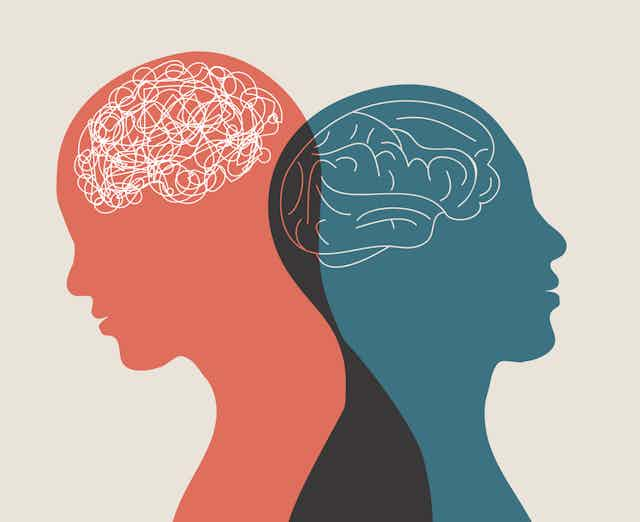The Importance of Seeking Aid from the Best Psychologist in Delhi for Stress Monitoring
The Importance of Seeking Aid from the Best Psychologist in Delhi for Stress Monitoring
Blog Article
Psych Therapy: A Comprehensive Overview to End Results and strategies

Cognitive-Behavioral Therapy
Cognitive-Behavioral Treatment (CBT) is an extensively utilized psychotherapeutic technique that concentrates on identifying and changing useless thinking and habits patterns. Created in the 1960s by Aaron T. Beck, CBT combines behavior and cognitive concepts to address different psychological wellness issues, consisting of clinical depression, stress and anxiety, and stress-related disorders.
CBT is identified by its organized, ambitious nature. Treatment usually entails a joint procedure in between the specialist and customer, where certain issues are determined, and functional strategies are established to address them. Techniques such as cognitive restructuring, exposure therapy, and skill-building exercises are commonly used. Cognitive restructuring entails tough and modifying adverse idea patterns, while exposure therapy aims to reduce fear and anxiety via steady direct exposure to feared things or scenarios.
Evidence-based study supports the effectiveness of CBT for a wide variety of emotional disorders - Best Psychologist in Delhi. Its focus on skill purchase and self-help techniques encourages customers to proceed development separately after treatment wraps up. The flexibility and efficiency of CBT have actually made it a cornerstone in modern psychotherapeutic technique
Psychodynamic Approaches
Rooted in the early theories of Sigmund Freud, psychodynamic techniques concentrate on discovering the unconscious mind and its influence on actions and feelings. These techniques intend to uncover hidden ideas and feelings that may be driving maladaptive habits and mental distress. Central to this technique is the concept of internal problem, commonly originating from unsettled previous experiences, especially those from childhood.
Therapists utilizing psychodynamic strategies use numerous essential methods, consisting of free organization, where people are encouraged to speak openly to expose subconscious product, and desire analysis, which interprets the unrealized web content of dreams. Additionally, the exploration of transference and countertransference characteristics within the restorative partnership is crucial. These interactions can supply insights into the client's inner globe and relational patterns.
Psychodynamic therapy is typically longer-term contrasted to various other techniques, supplying a deep and comprehensive understanding of the person's psyche. Study indicates that it can be especially effective for complicated psychological health and wellness problems, such as character disorders and persistent depression. By cultivating self-awareness and psychological understanding, psychodynamic treatment seeks to bring subconscious product to awareness, enabling individuals to attain purposeful and long lasting change in their lives.
Humanistic Techniques
Building on the structures laid by psychodynamic techniques, humanistic techniques offer a distinctive perspective focused on individual prospective and self-actualization. Coming from the mid-20th century, these techniques focus on the intrinsic benefits and development potential of people, highlighting an alternative view of human experience. Secret numbers such as Carl Rogers and Abraham Maslow have substantially influenced this restorative approach, which encompasses methods like client-centered treatment and Gestalt treatment.
Client-centered treatment, developed by Rogers, plays a crucial role in humanistic techniques. The therapist's role is more of a facilitator than an authority, encouraging customers to harness their internal resources for healing.
Gestalt treatment, another crucial humanistic technique, stresses existing moment understanding and the assimilation of mind and body. By concentrating on the "present moment," customers gain higher understanding into their present feelings and behaviors. Methods such as role-playing and led visualization are frequently used reference to aid clients acquire a much deeper understanding of themselves, inevitably resulting in improved self-awareness and gratification.
Integrative Treatments
Integrative therapies represent a synthesis of different restorative strategies customized to meet the distinct requirements of each client. This technique recognizes the intricacy of human psychology and the complex nature of psychological health issues. By combining aspects from different colleges of psychotherapy-- such as cognitive-behavioral treatment (CBT), psychodynamic treatment, and humanistic strategies-- integrative treatments offer an even more all natural and versatile therapy standard.
Professionals of integrative therapy analyze each client's details requirements, signs and symptoms, and personal history to devise a personalized treatment strategy. This customized technique enhances the capacity for therapeutic success by dealing with the origin of emotional distress and promoting overall well-being. Methods might include mindfulness workouts, cognitive restructuring, and psychological processing, each selected to target various elements of the client's issues.
Moreover, integrative therapies emphasize the healing connection, seeing the client-therapist bond as a crucial component of reliable treatment. This relationship promotes a supportive setting where clients feel risk-free to discover and address their concerns. The flexibility of integrative treatments makes them suitable for a wide range of problems, including anxiety, anxiety, trauma, and social problems, consequently raising their applicability and performance in varied clinical settings.
Measuring Treatment Outcomes
Evaluating the performance of psychiatric therapy is critical for both customers and clinicians to make certain that the like this treatment is producing the wanted outcomes. To attain this, different techniques and tools are employed to gauge treatment results methodically. Standardized assessment instruments, such as the Beck Anxiety Stock (BDI) and the Generalized Stress And Anxiety Condition 7 (GAD-7), offer measurable information on symptom seriousness and modifications in time.
Along with standardized tools, qualitative methods like client self-reports and scientific meetings provide valuable insights right into the individual experiences and viewed progress of clients. On a regular basis scheduled evaluations, commonly at the beginning, midpoint, and end of treatment, aid in tracking the trajectory of renovation or identifying locations requiring change.
End result measurement is not restricted to see sign reduction; it likewise includes useful improvements in life, such as much better social relationships, boosted job productivity, and enhanced total wellness. Modern innovations in electronic wellness have introduced mobile apps and on the internet systems that assist in real-time tracking and comments, better fine-tuning the assessment procedure.
Inevitably, an extensive method to gauging therapy outcomes makes certain that therapeutic interventions work, effective, and customized to fulfill the specific requirements of clients, thus optimizing the general restorative experience.
Conclusion
Humanistic techniques concentrate on personal growth and self-actualization, while integrative therapies incorporate numerous approaches for customized therapy strategies. Reviewing therapy outcomes via qualitative techniques and standardized assessments makes sure a thorough understanding of performance, eventually leading clients toward enduring mental health and wellness renovations.
From the structured technique of Cognitive-Behavioral Therapy (CBT) to the deep expedition of the unconscious in psychodynamic therapy, each method brings one-of-a-kind advantages. Its focus on ability procurement and self-help techniques encourages customers to proceed progression separately after treatment ends (Best Psychologist in Delhi). Trick numbers such as Carl Rogers and Abraham Maslow have substantially affected this therapeutic method, which includes methods like client-centered treatment and Gestalt therapy

Report this page